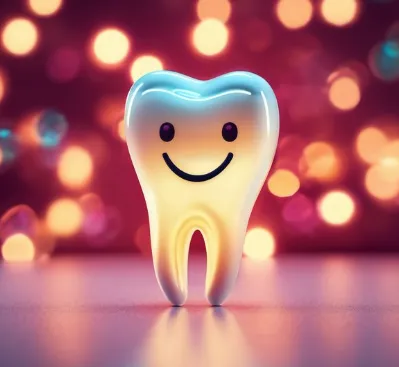
A radiant smile is more than just aesthetically pleasing; it’s a reflection of overall health and well-being. Your oral health is intricately linked to your systemic health, making it imperative to prioritize daily dental care. By incorporating effective oral hygiene practices into your routine, you can not only enhance your smile but also safeguard your long-term health. In this comprehensive guide, we will delve into the fundamental aspects of best dental care practices, from the basics of brushing and flossing to the role of diet and regular dental check-ups. Dental Care
Unveiling the Power of Prevention: The Cornerstone of Best Dental Care Practices
Prevention is the key to maintaining optimal oral health. By adopting proactive measures, you can significantly reduce your risk of developing dental problems such as tooth decay, gum disease, and bad breath. Here are some essential preventive measures:
Regular Brushing: Brushing your teeth at least twice a day, ideally after each meal, is crucial. Use a soft-bristled toothbrush and fluoride toothpaste to remove plaque and food particles from your teeth and gums.
Flossing Daily: Flossing is equally important as brushing, as it helps to remove plaque and food particles from between your teeth, where your toothbrush cant reach.
Mouthwash: Using a mouthwash can help to kill bacteria and freshen your breath.
Healthy Diet: A balanced diet rich in fruits, vegetables, and whole grains can contribute to oral health.
Limit Sugary Drinks: Sugary drinks can contribute to tooth decay, so it’s best to limit your intake.
Avoid Tobacco: Tobacco use, including smoking and chewing tobacco, can lead to a variety of oral health problems, including gum disease and oral cancer.
By following these simple preventive measures, yuo can significantly reduce your risk of developing dental problems and maintain a healthy, beautiful smile.
Brushing Beyond the Basics: Mastering the Art of Effective Teeth Cleaning
While brushing your teeth is a fundamental aspect of oral hygiene, it’s essential to do it correctly. Here are some tips for effective teeth cleaning:
Choose the Right Toothbrush: Opt for a soft-bristled toothbrush that is gentle on your gums.
Use Fluoride Toothpaste: Fluoride helps to strengthen your tooth enamel and protect against decay.
Brush Gently: Use gentle, circular motions to clean your teeth and gums.
Don’t Forget Your Tongue: Brushing your tongue can help to remove bacteria and freshen your breath.
Replace Your Toothbrush Regularly: Replace your toothbrush every three to four months or sooner if the bristles become frayed.
By following these tips, you can ensure taht your brushing routine is effective in removing plaque and bacteria, leading to a healthier smile.
Flossing: The Forgotten Hero of Oral Hygiene
Flossing is often overlooked, but it’s a crucial component of a comprehensive oral hygiene routine. Flossing helps to remove plaque and food particles from between your teeth, where your toothbrush can’t reach. Here are some tips for effective flossing:
Choose the Right Floss: You can choose from traditional floss, dental tape, or a floss pick.
Use the Correct Technique: Gently insert the floss between your teeth and slide it up and down to remove plaque.
Curve the Floss: Curve the floss around the base of each tooth to clean the entire surface.
Be Gentle: Avoid flossing to aggressively, as this can damage your gums.
By incorporating flossing into your daily routine, you can significantly reduce your risk of gum disease and maintain a healthy smile.
Nourishing Your Smile: The Role of Diet in Dental Health
A healthy diet plays a vital role in maintaining oral health. By consuming a balanced diet rich in essential nutrients, you can strengthen your teeth and gums. HEre are some foods that are beneficial for oral health:
Dairy Products: Dairy products, such as milk, cheese, and yogurt, are rich in calcium and phosphorus, which are essential for strong teeth and bones.
Fruits and Vegetables: Fruits and vegetables, especially those that are crunchy, can help to clean your teeth and gums.
Whole Grains: Whole grains are a good source of fiber, which can help to remove plaque from your teeth.
Water: Drinking plenty of water can help to keep your mouth moist and wash away food particles.
It’s important to limit your intake of sugary foods and drinks, as these can contribute to tooth decay. By making informed food choices, you can nourish your smile and promote overall oral health.
Regular Check-ups: Your Passport to a Lifetime of Healthy Smiles
Regular dental check-ups are essential for maintaining optimal oral health. During these visits, your dentist will examine your teeth and gums, clean your teeth, and perform any necessary dental procedures.
In addition to regular check-ups, it’s important to see a dentist if you experiance any of the following following symptoms:
Toothache
Gum pain or bleeding
Sensitivity to hot or cold
Swollen gums
Bad breath
Difficulty chewing or swallowing
By scheduling regular dental check-ups, you can identify and address potential dental problems early on, preventing them from worsening.
By following these best dental care practices, you can revolutionize your oral health and achieve a dazzling smile. Remember, a healthy mouth is a happy mouth, so make oral hygiene a priority in your daily routine. By taking proactive steps to maintain your oral health, you can enjoy a lifetime of healthy, beautiful smiles.